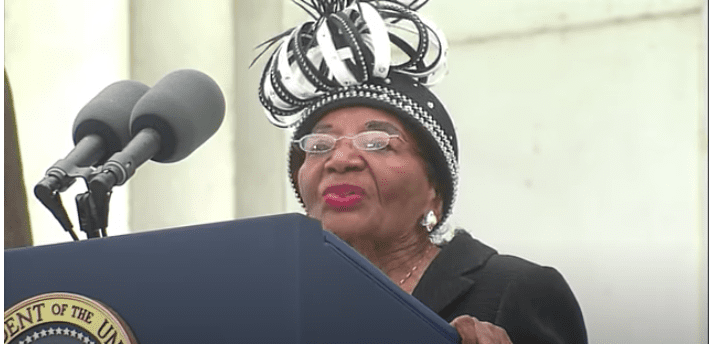
The name of Judge Horace Ward is one of the most respected in the nation when it comes to jurisprudence and civil rights. It has been announced that Judge Ward died at the age of 88 in Atlanta this past Saturday. Judge Ward was the first African American appointed to the federal bench in Georgia in 1979 by then President Jimmy Carter. Judge Ward’s roots go back to the early days of the Civil Rights movement.
Ward was born in Lagrange, Georgia in 1927 and after completing high school, he attended Atlanta’s historic Morehouse College, graduating a year behind Dr. Martin L. King, Jr. in 1949. After graduating from Morehouse, he earned his master’s degree from Atlanta University, now known as Clark Atlanta University. He planned to attend the University of Georgia School of Law but was rejected because of his race. At the time, the Georgia Board of Regents offered to pay him the difference between tuition at the University of Georgia if he attended another school outside of the state. Rather than adhere to the state policy at the time, he sued for admission to the University of Georgia Law School in 1952. He was the first Black person to challenge the segregation policy of Georgia’s segregated graduate schools. This was a direct challenge to the power of Georgia’s virulent racist Governor Herman Tallmadge, who pledged to uphold segregation laws in the state.
Helping him in his legal fight was then attorney Thurgood Marshall, Donald Hollowell and lawyers from the NAACP Legal Defense Fund. After a seven year fight in the court system, Ward lost his challenge to Georgia’s segregation law and went on to earn his law degree at Northwestern University in Chicago. Ward later went on to become the first Black elected to the Georgia Senate and later a Fulton County State Court judge; and then became the first Black Superior Court judge in Georgia. Ward retired from his federal judgeship in 2012 but remained a close political confidant to many of Atlanta’s Black leaders as well as a source of inspiration for thousands. His fight against segregation ultimately helped pave the way for the admittance of Black students at UGA in 1961.















